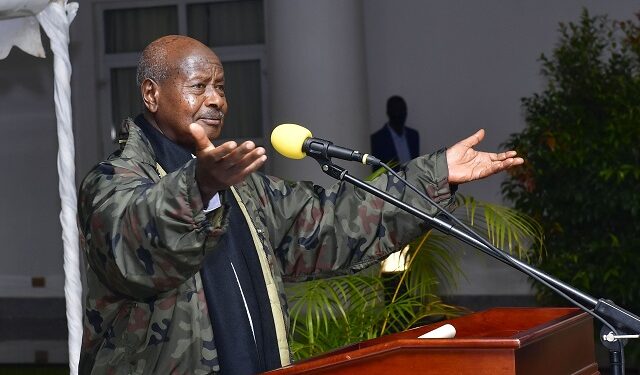Uganda’s Financial Recklessness Continues Despite Debt Crisis
Uganda, already drowning in a massive debt burden, is on the brink of making another reckless financial decision. The government plans to borrow a staggering Shs 2.4 trillion ($650 million) from international lenders, showing a complete disregard for the country’s precarious economic situation.
The borrowed funds are supposed to be allocated for road upgrades and the Climate Smart Agricultural Transformation Project, which, at first glance, may seem like worthwhile causes. However, given Uganda’s towering debt, this move is a financial train wreck waiting to happen.
The finance minister, Hon. Matia Kasaija, has presented these loan requests to Parliament’s Committee on National Economy, clearly hoping that they will sail through without much scrutiny. However, it’s time for Ugandans to question the wisdom of these decisions, especially when their country is already in the red.
| Loan Source | Loan Amount (USD) | Purpose |
|---|---|---|
| Islamic Development Bank | $295 million | National Roads Project |
| OPEC Fund for International Development | $30 million | National Roads Project |
| International Development Association of the World Bank Group | $325 million | Climate Smart Agricultural Transformation Project |
Road Upgrades: A Dubious Investment
A significant portion of the borrowed money, $325 million to be exact, is meant for the National Roads Project, with $295 million from the Islamic Development Bank and $30 million from the OPEC Fund for International Development. While improved infrastructure is undoubtedly crucial, the financial implications are troubling.
The government’s contribution of $22 million seems like a mere drop in the bucket compared to the borrowed sum. Moreover, this investment is expected to expand the stock of transport infrastructure, reduce freight transportation costs, and decrease travel time. These objectives sound beneficial, but are they worth plunging the nation further into debt?
The upgrade of the Katine-Ochero Road, Masindi Port Bridge construction, and the expansion of other roads may be necessary, but the government’s ability to handle these financial obligations is questionable.
Climate Smart Agricultural Transformation Project: A Risky Proposition
Uganda’s decision to borrow $325 million from the International Development Association of the World Bank Group for the Climate Smart Agricultural Transformation Project is equally concerning. While the project’s goal is to enhance agricultural productivity, market access, and resilience, the government’s approach is risky.
The government’s contribution of $4.7 million pales in comparison to the massive loan. This project is set to be executed in 69 districts, including seven refugee hosting districts across the country, further adding to the fiscal strain.
Kasaija claims these projects align with the Parish Development Model and will benefit over 13 million individuals. However, these grandiose plans fail to address the fundamental issue: Uganda’s growing debt crisis.
Debt Crisis Looms Large
As of June 2023, Uganda’s total public debt stands at an astonishing Shs 80.7 trillion, with Shs 47.7 trillion being external debt and Shs 30 trillion domestic debt. This alarming debt figure has raised red flags within the International Monetary Fund (IMF).
The IMF’s stress tests reveal that Uganda is perilously close to exceeding external debt burden thresholds and the public debt benchmark. The country has limited space to absorb economic shocks, including slower growth, environmental disasters, and global financial crises.
The recent approval of the ‘Anti-Homosexuality Bill 2023’ also poses a risk to donor financing and tourism, further highlighting Uganda’s vulnerability.
Furthermore, the composition of debt, with an increasing share of semi-concessional and non-concessional loans, paints a grim picture for Uganda’s financial future.
Parliament Must Act Responsibly
In light of these precarious financial decisions, it is imperative for Parliament’s committees to exercise due diligence when scrutinizing these loan requests. The future of Uganda’s economy is at stake, and it’s high time for the government to put its citizens’ well-being ahead of reckless borrowing.




















